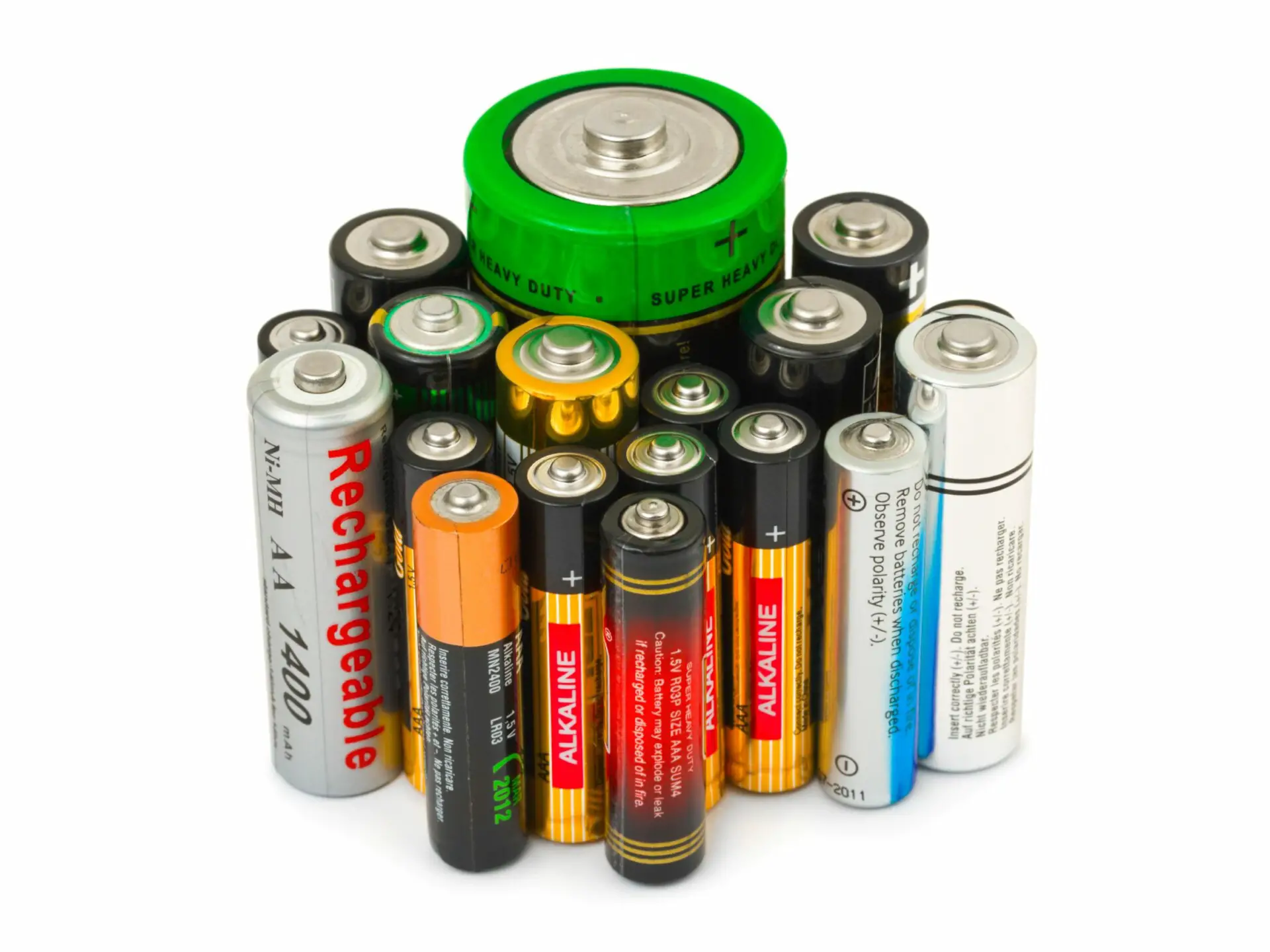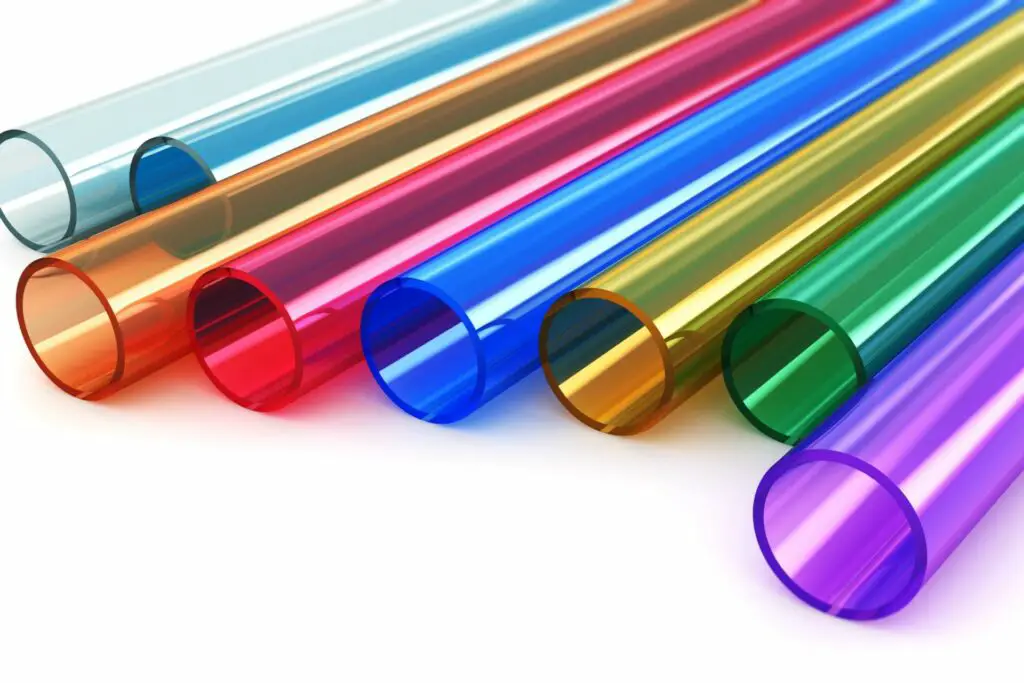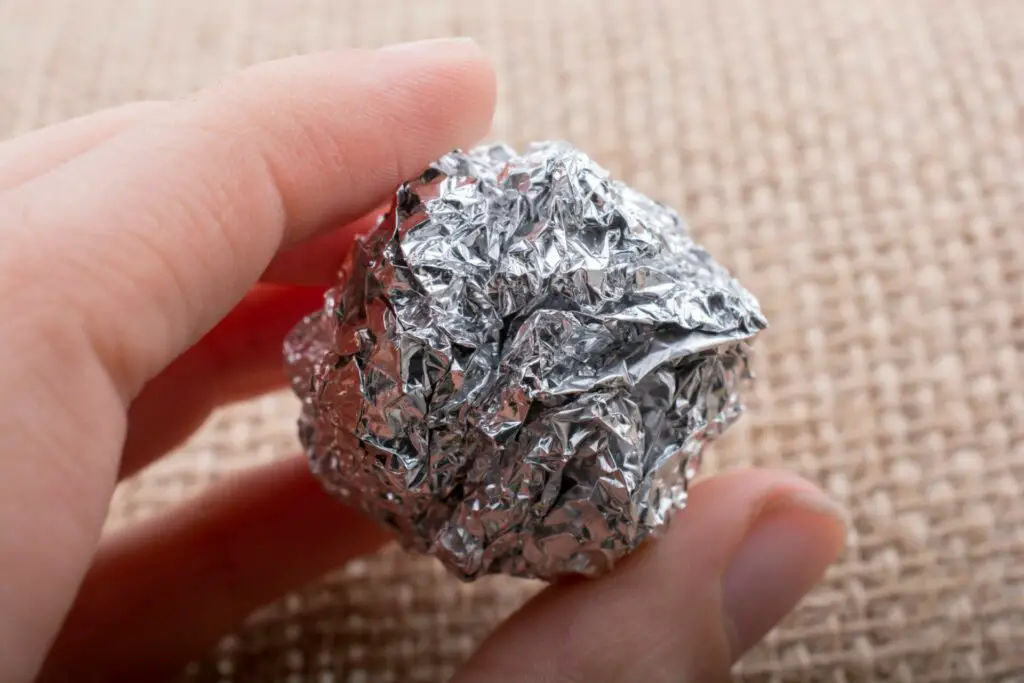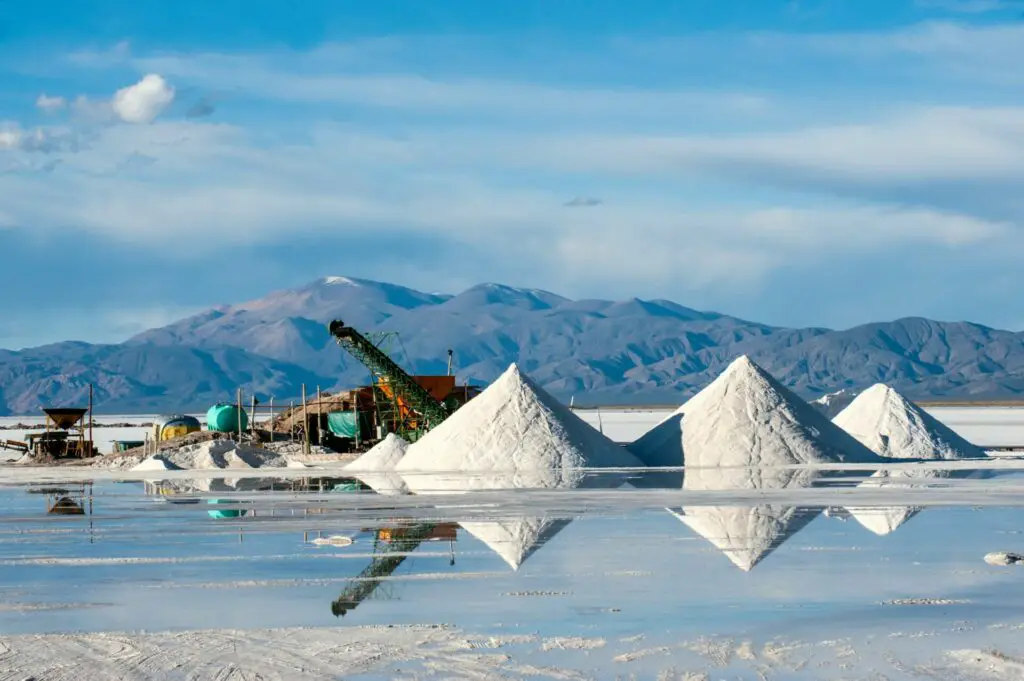In recent years, people have been growing more concerned about the impact of batteries on the environment.
So, where does that leave alkaline batteries?
Although they seem greener than some other batteries, alkaline batteries are still not good for the environment because they are made from non-renewable materials and rarely recycled.
1. How Do Alkaline Batteries Affect the Environment?
Life Cycle
Alkaline batteries have a shelf life of five to ten years; this refers to how long unused batteries are good for.
After this point, they may have lost some energy.
It’s hard to determine how long they last when in use.
It depends on what they’re being used for and how often that item is turned on.
What is clear is none of these batteries last indefinitely.
Non-renewable Components
Battery cells are made from metal.
These are usually a combination of steel, manganese, zinc, potassium, or graphite.
They can also contain some plastic.
None of these materials are sustainable.
Metal and plastic are not renewable.
Mining for these materials causes environmental harm due to deforestation, soil and rock instability, and pollution.
In 2021, the steel sector alone contributed more than 3.3 billion tons of greenhouse gas emissions.
In fact, metal production makes up around 10% of global greenhouse gas emissions, with plastic accounting for 4.5% of these emissions.
Manganese and other elements can easily enter the environment from mine sites.
This element is toxic to marine life in large doses and can potentially harm humans who eat contaminated fish.
Excess exposure to zinc can harm and kill marine life, while excess potassium can also harm fish.
Excess exposure to graphite can harm crops and cause air pollution.
Not Always Rechargeable
Alkaline batteries are not always rechargeable.
How long rechargeable batteries last can vary depending on the brand, battery type, and how much they are in use.
Rechargeable batteries can reduce waste. However, they’re not a perfect solution either.
Since most electricity is from non-renewable resources, using electricity to charge batteries is not particularly sustainable either.
2. Are Alkaline Batteries Toxic?
Alkaline batteries are seen as safe, but this does not mean they cannot be toxic or harmful at all.
Due to the Mercury-Containing and Rechargeable Battery Management Act (Public Law 104-142), the use of mercury in batteries was phased out.
Research found that mercury batteries had corrosive properties if swallowed, but zinc did not show corrosion.
However, that’s not to say it’s safe to consume any batteries; you should still seek medical attention if your child swallows batteries.
Animal studies found that alkaline batteries leaked when they were consumed by rats.
The rats experienced perforation of the digestive tract, and some even died.
When heated, alkaline batteries can emit potassium oxide (K20), which is toxic.
Handling alkaline batteries correctly does not seem to be toxic, but that doesn’t mean they cannot be toxic in certain situations.
3. Are Alkaline Batteries Recycled?
Alkaline batteries are recyclable, but they rarely actually are recycled.
This is because it’s not always financially profitable or feasible to do so since it costs money to recycle batteries.
Since it is considered safe to dispose of alkaline batteries in the general waste bin, most people do so, but there are battery recyclers who accept them.
Lead batteries are recycled more because they’re hazardous in landfills and are profitable to recycle.
Almost all of the lead in these batteries is recycled to make new batteries.
Lead batteries are even believed to be the most recycled consumer product in the world, with almost 90% of lead batteries being recycled.
Alkaline batteries are believed to be the most used battery in the world, so the low recycling rates are concerning.
According to Battery University, only 4% of alkaline batteries are recycled.
4. Are Alkaline Batteries Biodegradable?
Alkaline batteries are not biodegradable since metal is not biodegradable.
There has been research into developing biodegradable batteries, but for the foreseeable future, alkaline batteries are not biodegradable.
5. What Happens to Alkaline Batteries When You Throw Them Away?
Alkaline batteries are not biodegradable, so they will not break down in landfill.
They may begin to leak; they usually leak potassium hydroxide.
This substance can be corrosive, harmful when heated or burned, and may cause pollution.
6. Are Alkaline Batteries Hazardous Waste?
As far as batteries go, alkaline batteries are not considered toxic or hazardous waste – but that doesn’t mean they are completely harmless either.
They do not contain lead or mercury.
However, some of the substances in these batteries can still cause pollution or have toxic effects.
As mentioned earlier, potassium hydroxide can be corrosive.
7. How to Dispose of Alkaline Batteries?
They can technically go in the general waste bin, but many prefer sending them to hazardous waste facilities and battery recycling companies.
However, not everyone will have access to these facilities.
Lots of stores and local communities have collection points for old batteries.
Just because it may be safe to put alkaline batteries in the general waste does not mean you can dispose of other batteries this way.
8. Are Lithium or Alkaline Batteries Better for the Environment?
Both lithium and alkaline batteries have pros and cons.
It’s hard to determine which is better for the environment since neither is exactly sustainable in the first place.
Lithium batteries have a higher energy density than alkaline batteries.
So, given that one lithium battery will store more energy than one alkaline battery, they last longer – reducing the demand for new batteries.
However, they also have an extremely low recycling rate of only 1%.
Lithium is believed to have low toxicity.
However, they cannot go in the general waste bin as they can easily cause fires if they leak, which is why they must be sent to a recycling facility or a hazardous waste facility.
Lithium is also sourced via mining, so it can also contribute to deforestation and the spread of pollution.
9. What Are Eco-Friendly Alternatives to Alkaline Batteries?
Sodium-Ion Batteries
Sodium-ion batteries are often presented as a greener alternative, but there are still some drawbacks.
Sodium is more abundant than some of the other minerals used to make other types of batteries, like zinc, so this is more sustainable.
There has also been research into developing fully recyclable, rechargeable sodium-ion batteries.
In terms of emissions, sodium-ion batteries can release an equivalent of 50.6 and 52.3 kg CO2 eq. per kWh – although other kinds of sodium-ion batteries can be much higher.
Whereas lithium batteries can release 44.8 and 49.6 kg CO2 eq. per kWh.
Manufacturing one alkaline battery can release the equivalent of 0.107 CO2 kg.
One AA alkaline battery contains 0.0039 kilowatt-hours.
So, AA alkaline batteries release around 27.4 CO2 eq per kWh.
Metal Free Batteries
There has also been research into developing metal-free batteries, eliminating the need for mining.
You Might Also Like…
- Is Fast Food Bad for the Environment? (& What You Can Do)
- Is Fabric Softener Bad for the Environment? (+5 Eco-Friendly Options)
- Is Fuel Dumping Bad for the Environment? (& How Often It Happens)
- Is Electricity Generation Bad for the Environment? (What You Should Know)
- Is Dry Cleaning Bad for the Environment? (4 Surprising Facts)
- Is Diamond Mining Bad for the Environment? (Important Facts)
- Is DEET Bad for the Environment? 4 Effects (You Should Know)
- Is Cat Litter Bad for the Environment? (5 Common Questions)
- Is Burning Cardboard Bad for the Environment? (6 Facts)
- Is Burning Paper Bad for the Environment? (6 Surprising Facts)
- Is Burning Leaves Bad for the Environment? (7 Quick Facts)
- 4 Natural Cleaners for Quartz Countertops
- 6 Eco-Friendly Acrylic Paint Brands (For Sustainable Artists)
- 5 Eco-friendly Alternatives to Acrylic Paint (& How to Make Them)
- Is Acrylic Paint Bad for the Environment? (7 Quick Facts)
- Is Acrylic Yarn Bad for the Environment? 8 Crucial Facts
- Is Acrylic Bad for the Environment? (8 Quick Facts)
- Is Aluminum Foil Bad for the Environment? 7 Quick Facts
- Is Bleach Bad for the Environment? 6 Crucial Facts
- Is Lithium Mining Bad for the Environment? 6 Crucial Facts































